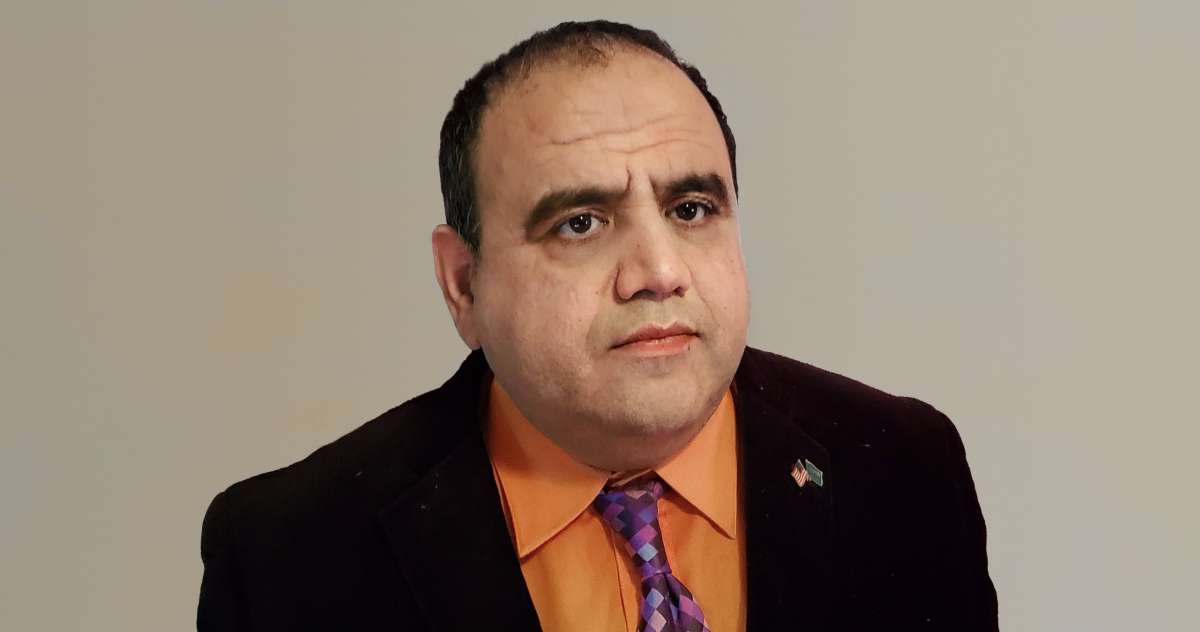Exactly one year ago, Chaudhery Mustansar Hussain was lying in an ICU bed connected to a ventilator. The NJIT adjunct professor was infected with COVID-19, and his body needed to increase its 54% oxygen levels. His family’s only way of seeing him was through digital screens, showing him in a coma for about 25 days.
Hussain, director of chemistry and environmental science laboratories, utilized this life-altering experience to his advantage. Having worked internationally with other researchers throughout his career, he made sure to educate others on his findings and experiences.
He decided to publish a number of books that covered information primarily regarding his main field of study: environment and sustainability. The first of these is “Detection and Analysis of SARS Coronavirus,” which was published on July 13, 2021.
When Hussain first tested himself for the virus, it was through the random testing system that was implemented at NJIT. He had not even suspected to have come in contact with the virus until he got a positive result back. This led to him calling an emergency number, not for himself, but for his family. He feared for their health even though he was the first to get hospitalized.
With this in mind, Hussain spoke about how the first step in addressing a situation like the pandemic is detection. Without knowing who might have the virus, researchers and scientists wouldn’t be able to discuss and develop treatments or remedies. The aforementioned book includes the endeavors of developing a contactless coronavirus detector through biosensor technology.
“COVID-19 in the Environment,” published on Sep. 24, covers the ecological impact of the virus. When the pandemic first hit, almost every operation was immediately shut down. People became more aware of how many resources they used or wasted on a daily basis.
“After that global lockdown, there were practically zero emissions,” Hussain mentioned. “People who love the environment saw that it needed to have that kind of break from its otherwise everyday use.”
The final book, published last year, was “Living with COVID-19.” Along with major scientific impacts, the book discusses how the social economy has been influenced by the virus.
“Society has moved to a different dimension,” he said. “There isn’t only an effect on the scientific and technological aspect of the environment; there is also a significant amount on the physical, biological and social environment, too.”
Hussain also talked about the importance of working with fellow researchers overseas. “It’s important to make sure the people you work with have the same scientific mentality and understanding of the problem,” he explained. “These people are able to give me the global context of their own countries battling the same issue.”
With emissions being reduced at the start of the pandemic, there came a different environmental concern: disposable protective equipment, especially face masks. Earlier this year, the United States Centers for Disease Control and Prevention updated its guidelines about reusable cloth masks; they are proven to offer the least amount of protection against the spread of COVID-19.
This update resulted in higher use of disposable masks in order to be safer around other people. Ever since the start of the virus spreading, disposable face masks have piled up in landfills, which ultimately go into the sea according to Hussain.
“This is happening in a very short period of time — just about two years,” he said. “If this had happened over the course of, say, 20 years, it would have been okay.”
As mentioned earlier, the first step to managing situations like the pandemic is detection. Then, the disinfection must take place — how to kill these viruses — and Hussain is currently working diligently on this step. “We have different materials, different methods — the ultraviolet method, nanotechnology, carbon nanomaterials…” he mentioned.
“This is what these books are talking about,” Hussain stated. “I mean, it’s basically giving the people dimension, real data and things that can guide them to a realization of [the virus’s] impact.” His next two books, titled “Environmental Impact of COVID-19” and “Sensing Tools and Techniques for COVID-19: Developments and Challenges in Analysis and Detection of Coronavirus,” will be respectively published on March 17 and June 15 this year.
Hussain puts it simply as, “[Understanding the effects] is not a matter of human rights; it’s a matter of life and death.” He would like to give his sincerest thanks to his family, colleagues, students and community members who have supported him throughout his recovery process.




































